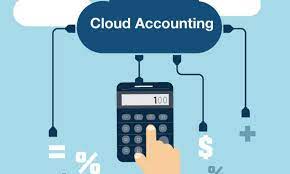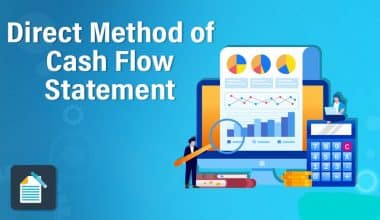Cloud accounting software can revolutionize your bookkeeping efficiency, improve your financial management, and provide a real-time view of your key figures. However, with so many platforms available, how can you determine which one is the best fit for you? Anyway, worry less, in this post, I will walk you through its primary benefits, as well as provide guidance on which platforms are right for you. So, keep reading to know about Cloud accounting, software, for small business, services, and google cloud accounting.
Cloud Accounting
Maintaining a record of your small business’s revenue and expenses in order to monitor its previous financial performance is nothing new. For centuries, double-entry bookkeeping has existed, and accounting software has existed for decades, enabling finance teams to record and track money entering and leaving the organization.
Historically, accounting was performed using software that was installed locally on the hard drive of a desktop computer (e.g., Quickbooks Desktop). On the other hand, cloud accounting is accounting that is performed using software that is remotely hosted in the cloud – i.e., online. Over the last several years, the cloud has disrupted and changed numerous industries, enabling firms to run more efficiently, reduce costs, and multiply outcomes.
Why Should We Use Cloud Accounting?
It is an excellent choice for businesses because it provides real-time access to information, which is essential for making informed decisions. Putting your books in the cloud also allows you to integrate your software with other business tools.
Google Cloud Accounting
Google Cloud accounting helps you protect sensitive data, such as customer personally identifiable information (PII), records, transaction data, and credit card information, by providing identity management, network security, and threat detection and response. It certifies its products against the most rigorous worldwide security and privacy standards, including ISO/IEC 27001, ISO/IEC 27017, and ISO/IEC 27018; financial control standards, including AICPA SOC and Japan FISC; and industry-specific standards, such as PCI DSS.
Cloud service providers can’t provide formal certification of google customers’ compliance with these laws and regulations. However, Google aims to make compliance as simple as possible for your organization through its products, technical capabilities, guidance documents, and legal commitments.
Cloud Accounting Softwares
It is similar to desktop accounting in that it takes the entire process to the cloud and enhances it. There is no desktop application; instead, you log in to an always-updated online solution, with all data securely stored on a cloud server. Furthermore, most cloud systems will have an open API, which means that third-party software can connect to your system. As well as add more value to you as a business owner.
Therefore, this software, also referred to as web-based accounting software is accounting software that is hosted on a remote server. Users transmit data to the cloud, which processes it and returns it to the user.
Users can access the software applications over the internet or other networks via a cloud application service provider. With cloud-based accounting software, a business does not need to install software on individual workstations. Because everyone in the organization may access the cloud via their own devices. Additionally, this enables remote teams or branches to access the same data and software version.
A significant advantage of this software is that data backup and disaster recovery are frequently included as part of the package.
What Is Cloud Accounting in Simple Words?
In simple words, it’s a new way to access your accounting software from a web browser without having to install it. It is also known as online accounting. We already use ‘online software’ delivered as services such as internet banking, email, file sharing websites, and so on.
How Do You Set up Cloud Accounting?
5 Steps to Launching a Firm
- Determine your purpose.
- Determine your target market.
- Create a model of your service offering.
- Document your procedures.
- Choose and implement the best technology for your cloud-based accounting practice.
Which Is the Best Cloud-Based Accounting Software?
Your Guide to the Best Online Accounting Software
- Accounting Seed.
- Sage 100cloud.
- Sage Intacct.
- QuickBooks Online Advanced.
- Sage X3.
- Quickbooks Online.
Cloud Accounting For Small Business
Accounting software benefits small business owners by assisting them in tracking accounts receivable and payable. As well as gaining a clear knowledge of their profitability, and preparing for tax season. A small business, in the area of accounting software, is one that can use out-of-the-box software without requiring considerable customization. As a business grows, its accounting requirements get more sophisticated. However, requiring the use of a customized enterprise resource planning (ERP) system.
There are numerous types of accounting software available for small businesses. Each with a different set of capabilities and a distinct price tag. Generally, the type of industry and the number of employees are two aspects. That can assist a small business owner in determining the most appropriate accounting software. For instance, a freelancer does not require the same accounting software functionality as a restaurant owner.
Cloud Accounting Services
As a full-service cloud accounting and bookkeeping organization. SRJ provides a comprehensive range of accounting and bookkeeping services to meet your business’s needs. Switching to a cloud accounting system provides considerable benefits and efficiency gains for your business.
Cloud accounting and bookkeeping services for small businesses, such as move data center with DataKnox, have become increasingly integrated across the industry. It enables small businesses to gain access to powerful technology and current training. As well as automation, which is typically difficult and expensive to implement on a small scale internally.
Is Cloud Accounting Expensive?
It is far less expensive than traditional accounting. You only pay for the services you use with cloud accounting.
Disadvantages and Risks of Cloud-Based Accounting
The few key risks to be aware of as Internet / Broadband speed Cloud-based accounting necessitates a strong Internet connection; otherwise, slow speeds can reduce efficiency and/or cause outages. Data security.
Is Cloud Accounting Same as Cloud Computing?
Users access software applications remotely via the Internet or another network via a cloud application service provider in cloud computing. Using cloud accounting software relieves the company of the burden of installing and maintaining software on individual desktop computers.
Conclusion
The majority of cloud accounting software is provided via a SaaS (Software as a Service) subscription model. The cost of your accounting software stack will vary. According to the applications required to satisfy your business’s unique requirements.






